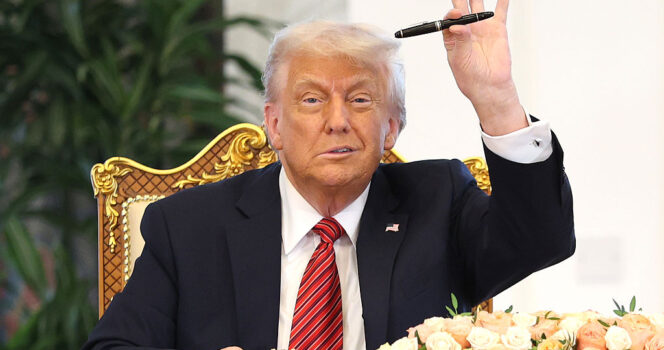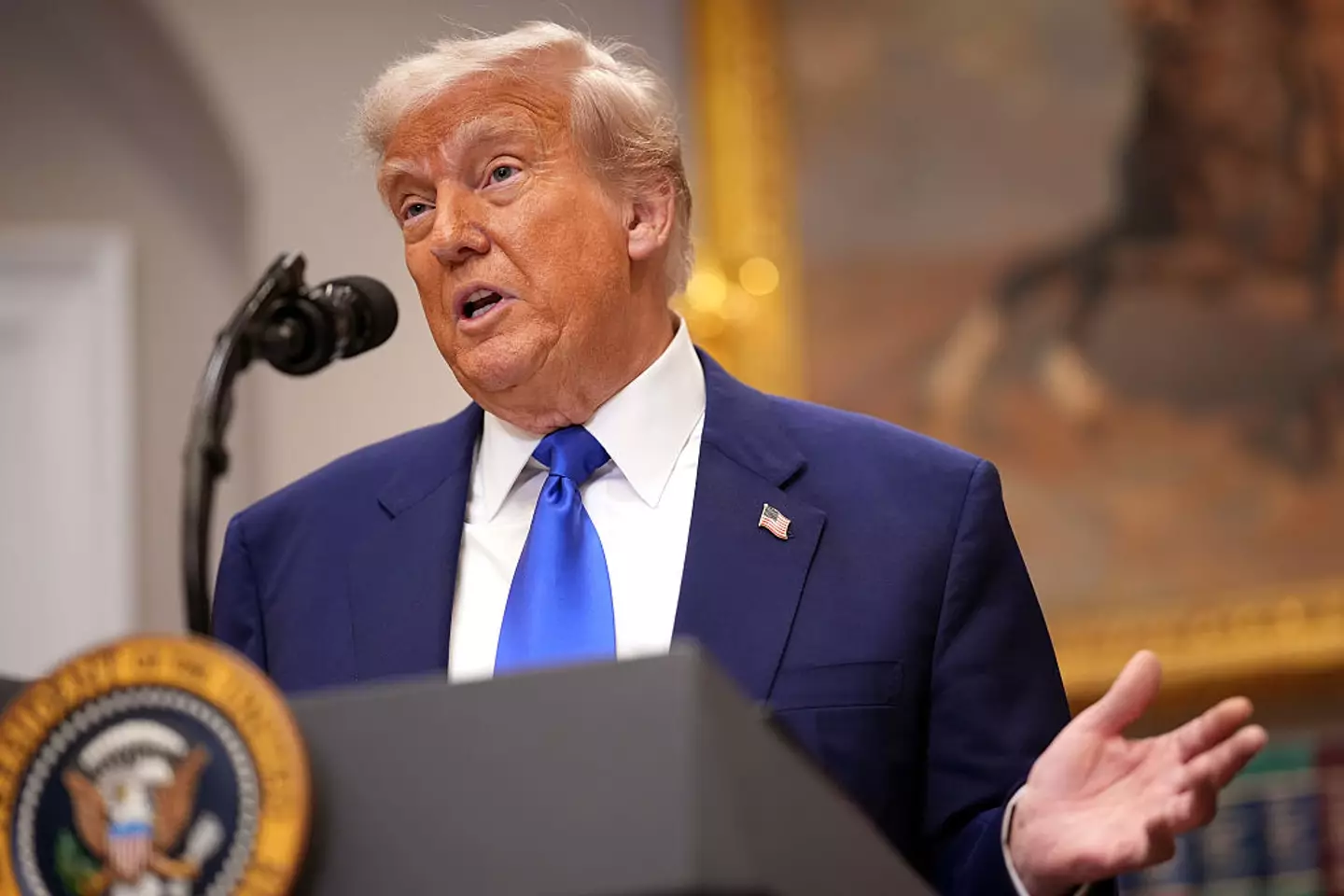Former U.S. President Donald Trump drew attention during a recent press briefing when he referred to the term “equalizing” as a “new word” in the context of prescription drug pricing reforms. The comment, made during an announcement regarding new federal measures aimed at lowering drug costs, quickly became a topic of conversation on social media and among language experts.
Trump Introduces Drug Price Reform Plan
At a televised White House press event earlier this week, Trump outlined plans for a new executive initiative aimed at reducing U.S. prescription drug costs by up to 80%, targeting price alignment with countries in Europe.
“What we are doing is one of the most consequential actions in modern health care,” he said, referring to efforts to “equalize” pharmaceutical prices across borders.
The former president continued:
“We’re going to equalize. We’re all going to pay the same. We’re going to pay what Europe’s going to pay.”
It was during this portion of the speech that Trump appeared to refer to the word equalizing as something he had coined himself.
“It’s a new word that I came up with, which I think is probably the best word,” he said.
Linguists and Historians Respond
While the intent behind the remark appeared to be rhetorical, language historians and linguists were quick to clarify that the term equalizing has existed in English for centuries.
According to Merriam-Webster, the verb equalize has been part of the English language since at least 1559, with roots in Late Latin (aequalizare), meaning to make equal. The Oxford English Dictionary also traces usage of the term to the late 15th and early 16th centuries.
Farrukh Younus, a language and technology commentator, posted a breakdown of the word’s history on TikTok and X (formerly Twitter):
“President Trump says he came up with the word ‘equalize.’ However, the word dates back to at least 1480. Latin root: aequalis = equal. Late Latin: aequalizare = to make equal. Adopted into English between 1480–1500.”
Social Media Reaction: A Mix of Humor and Clarification
Following Trump’s remarks, the internet responded with a blend of humor, curiosity, and linguistic fact-checking. On platforms like X, Reddit, and YouTube, users posted jokes, educational breakdowns, and clips from the event.
Some users pointed out pop culture references as evidence of the term’s history:
“Pretty sure there was a show in the 1980s called The Equalizer. Didn’t that come out decades ago?” one user wrote.
Others defended the former president, suggesting that his use of “new word” was figurative or promotional, not literal.
Still, professional language organizations emphasized the importance of accurate communication, especially when political leaders speak to national and global audiences. The American Dialect Society issued a short post reminding readers of the historical context of commonly used English terms.

Policy Context: Drug Pricing and Health Care Reform
Setting aside the word-related debate, Trump’s announcement centered around a revised plan to cap U.S. prescription drug prices, part of broader health policy efforts first proposed during his presidency and revisited ahead of the upcoming election cycle.
The proposed initiative, still under review by federal agencies, would involve negotiating drug prices to reflect rates in European markets, a move intended to address long-standing concerns over high out-of-pocket costs for U.S. patients.
“The rest of the world has been benefiting at the expense of the American consumer,” Trump said. “It’s time for that to change.”
According to Reuters, this policy could have significant implications for Medicare, Medicaid, and private insurers, and may influence pharmaceutical pricing strategies globally.

No Official Clarification from Trump Team
As of the time of publication, Trump’s communications office has not issued a statement clarifying whether the use of “new word” was meant literally or as a rhetorical flourish. Media outlets including BBC News and The New York Times noted that this type of language is consistent with Trump’s speaking style, which often includes hyperbole and branding techniques.
Political analysts also observed that Trump frequently employs simple, repeated phrases to frame policy initiatives, making them memorable to supporters.
Expert Commentary: The Power of Language in Politics
Dr. Susan Ferris, professor of political communication at Georgetown University, commented that the incident reflects how political figures use language to shape narratives, even when their word choice may not be strictly accurate.
“It’s not unusual for politicians to adopt or reframe existing terms to promote policy. What matters is how the public interprets those words and whether the message resonates,” she said.
She added that while accuracy in language is important, rhetorical devices have long been used to draw attention to complex policy proposals.

Final Thoughts
Donald Trump’s reference to equalizing as a “new word” sparked widespread attention — not for introducing new vocabulary, but for bringing a centuries-old term into the spotlight during a policy announcement on drug pricing. The moment served as a reminder of how language, leadership, and public discourse intersect, especially in an election year.
Whether rhetorical or mistaken, the comment triggered a larger conversation about language in politics, the role of historical literacy in public discourse, and how leaders shape policy narratives.
Verified Sources:
-
Merriam-Webster Dictionary – Equalize
-
Oxford English Dictionary – Historical Use
-
Reuters – U.S. Drug Pricing Reform
-
BBC News – Trump Policy Announcements
-
National Archives – Executive Orders


